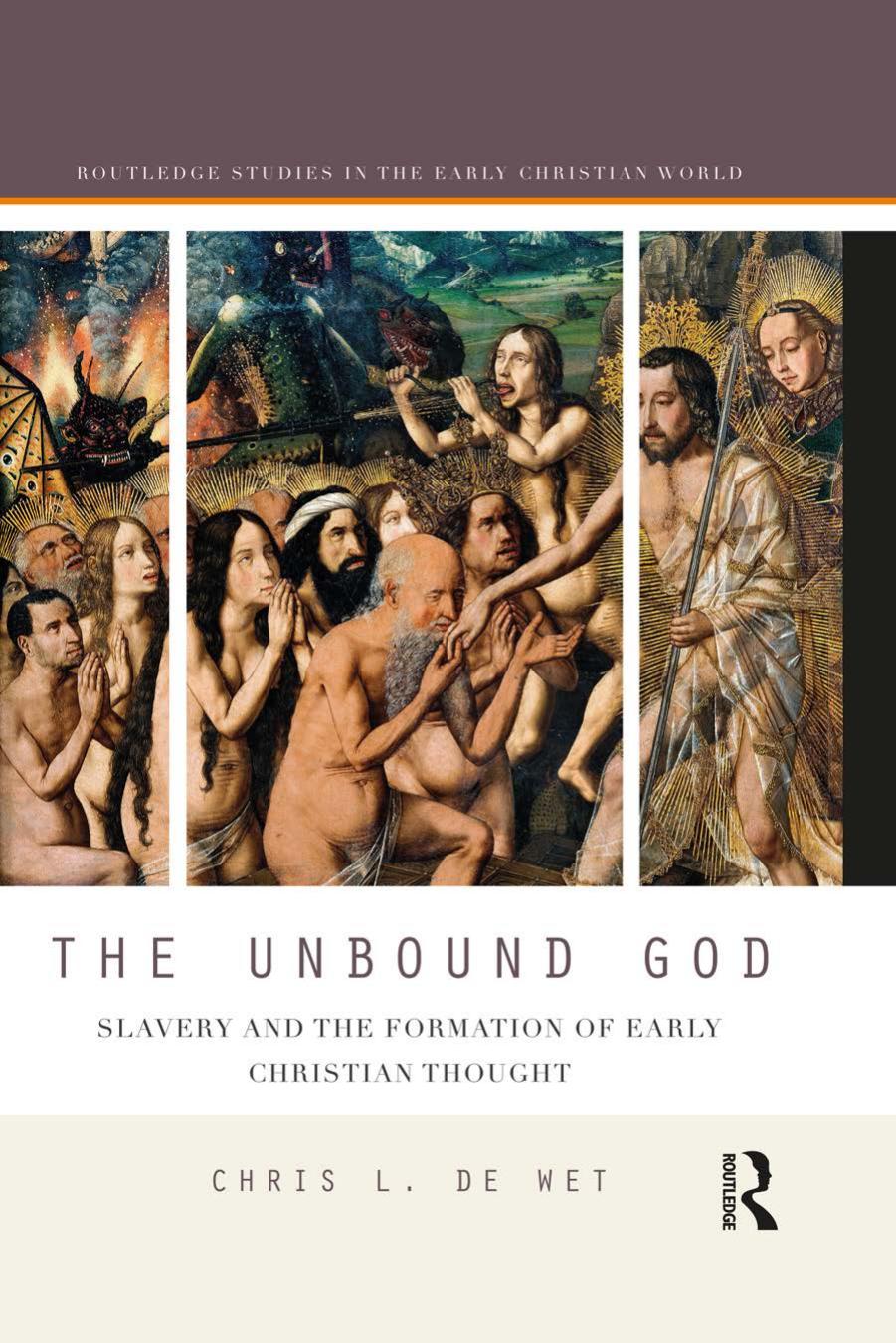The Unbound God by De Wet Chris L

Author:De Wet, Chris L.
Language: eng
Format: epub, pdf
Publisher: Taylor & Francis (CAM)
In this spiritual hierarchy the Holy Spirit is subject to the Son, who is subject to the Father. The angels afford a position below the Spirit in Eunomiusâ spiritual order, and in this regard we see Eunomiusâ spiritual taxonomies and hierarchies most clearly. âAgain, when God is called âSpiritâ this does not imply that he is of the same nature as other beings called âspiritâ â¦. Rather, in each case we preserve the proportionate relationship [analogon],â writes Eunomius. âThe Son is the âoffspringâ and âthing madeâ of the Unbegotten and Unmade, while heaven and angels and every other âthing madeâ whatsoever are things made by this âthing made,ââ Eunomius continues, ââmade through himâ at the command of the Father.â43 The heavens and the angels occupy a different rank in the spiritual hierarchy, and are not by any means equal to the Son or the Spirit, since they are made through the One who is Himself made by the Unmade One. As Eunomius admits, the success of the argument depends on upholding this complex and precise analogy. Like Hermas, there is a place for every spiritual being, and every spiritual being must be in its place.
In most cases, then, Eunomius prefers to use positive servant titles rather than slave titles to describe the Son and the Spirit and their relationship to the unbegotten Father; he also seems to rely on differing ranks of free servants in order to justify the subordination of the Spirit to Christ and the subordination of the angels and other heavenly bodies to the Son. His doulological classifications are complex and highly nuanced, and, if one considers the centrality of precision (akribeia) in Eunomiusâ thought, this specific choice of language is probably not coincidental. Eunomius considered himself one of the experts, or periti, of religious discourse, with the implication that his selections of titles and hierarchical formulations are not haphazardly constructed.44 Eunomius seems to avoid explicit terms related to slavery. His use of other terms is strategic.
According to Vaggione, it is only in Eunomiusâ response to Basil and his other critics, in his second apology, the âApologia apologiae,â at least from what can be reconstructed of the document, that Eunomius uses language directly related to slavery, such as douleia, douleuÅ, and doulos.45 But these were mostly used in reference to Phil. 2:7, which states that Christ emptied himself and took the form of a slaveâa verse that Basil quotes several times in Against Eunomius. However, Eunomiusâ Apology is not totally bereft of explicit slavery language. In chapterâ20 he states:
[I]t seems to us that those who presume to compare the essence which is unmastered [adespoton], superior to all cause, and unbound by any law to that which is begotten and serves [douleuousÄ] the law of the Father, have neither really examined the nature of the universe, nor made judgements about these things with clear minds.46
Download
This site does not store any files on its server. We only index and link to content provided by other sites. Please contact the content providers to delete copyright contents if any and email us, we'll remove relevant links or contents immediately.
| Africa | Americas |
| Arctic & Antarctica | Asia |
| Australia & Oceania | Europe |
| Middle East | Russia |
| United States | World |
| Ancient Civilizations | Military |
| Historical Study & Educational Resources |
Cecilia; Or, Memoirs of an Heiress — Volume 1 by Fanny Burney(32536)
Cecilia; Or, Memoirs of an Heiress — Volume 2 by Fanny Burney(31934)
Cecilia; Or, Memoirs of an Heiress — Volume 3 by Fanny Burney(31925)
The Secret History by Donna Tartt(19025)
Sapiens: A Brief History of Humankind by Yuval Noah Harari(14358)
Leonardo da Vinci by Walter Isaacson(13304)
The Radium Girls by Kate Moore(12012)
Sapiens by Yuval Noah Harari(5363)
How Democracies Die by Steven Levitsky & Daniel Ziblatt(5209)
The Wind in My Hair by Masih Alinejad(5085)
Homo Deus: A Brief History of Tomorrow by Yuval Noah Harari(4896)
Endurance: Shackleton's Incredible Voyage by Alfred Lansing(4749)
Man's Search for Meaning by Viktor Frankl(4568)
The Silk Roads by Peter Frankopan(4522)
Millionaire: The Philanderer, Gambler, and Duelist Who Invented Modern Finance by Janet Gleeson(4457)
The Rape of Nanking by Iris Chang(4194)
Joan of Arc by Mary Gordon(4091)
The Motorcycle Diaries by Ernesto Che Guevara(4081)
Stalin by Stephen Kotkin(3953)
